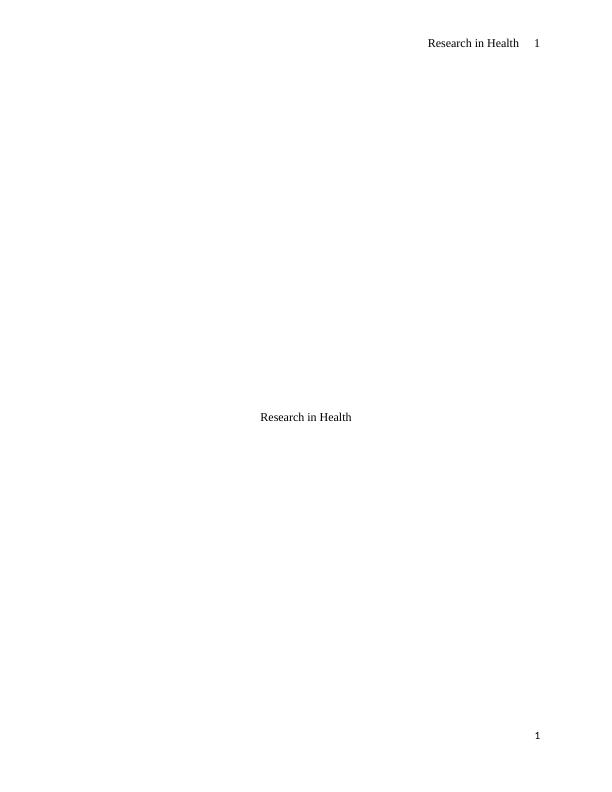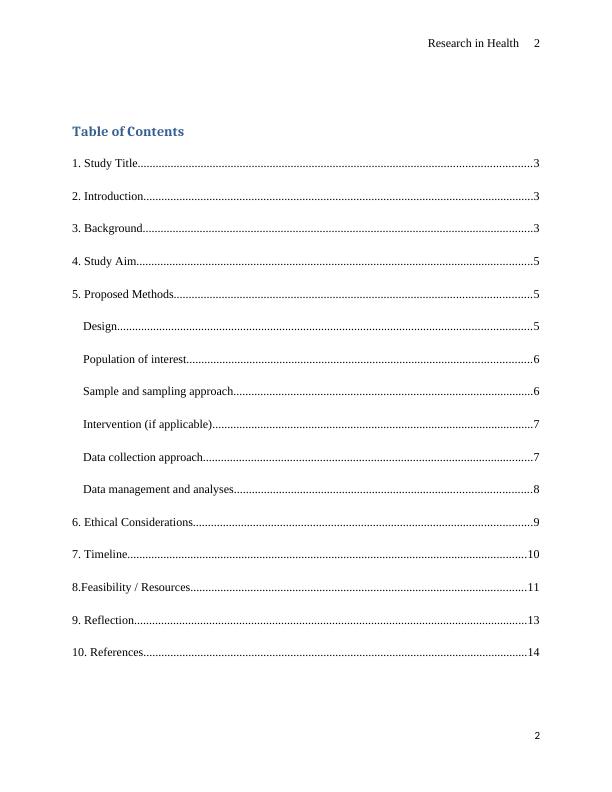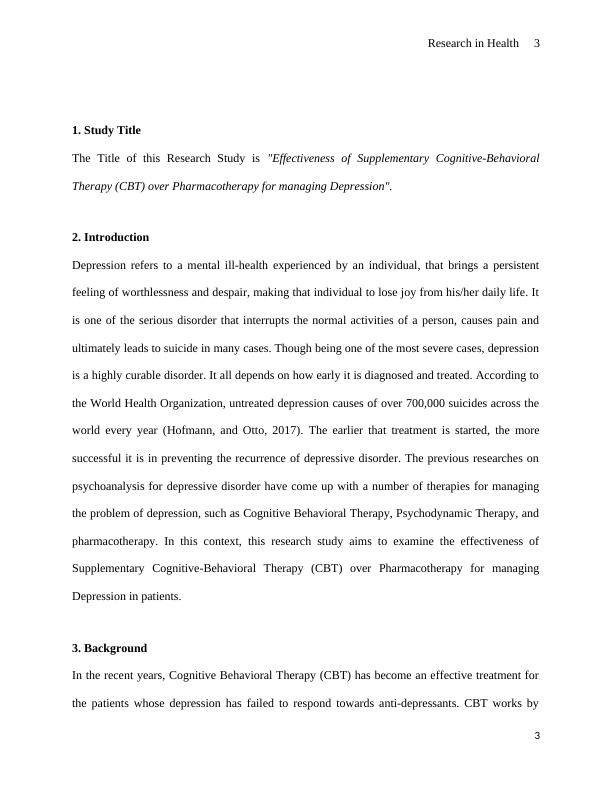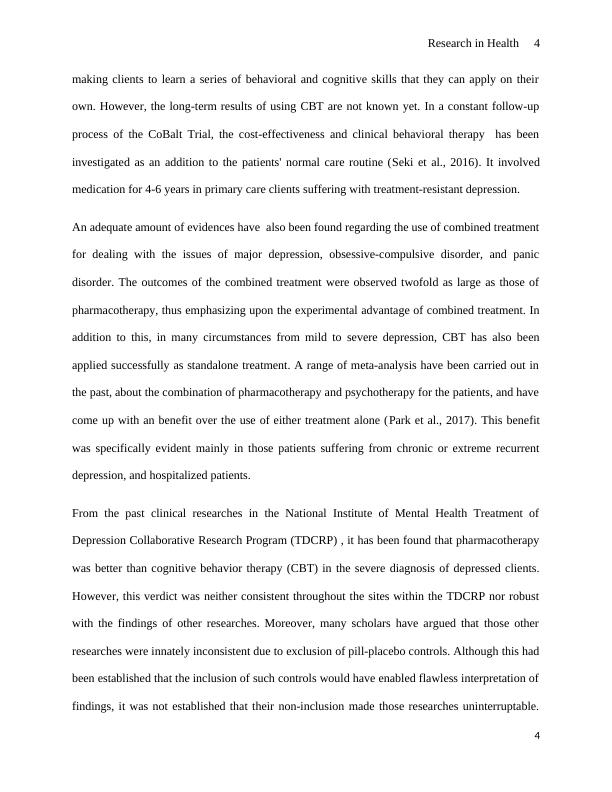Effectiveness of Supplementary Cognitive-Behavioral Therapy (CBT) over Pharmacotherapy for managing Depression
Development of a complete research proposal for a study on the cost effectiveness of cognitive behavioural therapy as a treatment option for patients with depression who do not respond to pharmacotherapy.
15 Pages3477 Words280 Views
Added on 2023-06-03
About This Document
This research study aims to examine the effectiveness of Supplementary Cognitive-Behavioral Therapy (CBT) over Pharmacotherapy for managing Depression in patients. The study design, population of interest, proposed methods, ethical considerations, and timeline are discussed.
Effectiveness of Supplementary Cognitive-Behavioral Therapy (CBT) over Pharmacotherapy for managing Depression
Development of a complete research proposal for a study on the cost effectiveness of cognitive behavioural therapy as a treatment option for patients with depression who do not respond to pharmacotherapy.
Added on 2023-06-03
ShareRelated Documents
End of preview
Want to access all the pages? Upload your documents or become a member.
Effectiveness of Depression Disorder Treatments
|13
|4006
|120
Table of Included Studies on Cognitive Behavioral Therapy and Pharmacotherapy for Depression
|4
|623
|371
Effectiveness of Supplementary Cognitive Behaviour Therapy for Depression: Research Proposal
|10
|2627
|391
Can Cognitive-Behavioral Therapy for Anxiety and Depression Be Improved with Pharmacotherapy? A Meta-Analysis
|25
|12416
|243
Effectiveness of Cognitive Behavioral Therapy in Treating Depression in Older Patients with Dementia
|16
|3671
|490
Post Traumatic Stress Disorder Research Paper Outline
|7
|1163
|115




